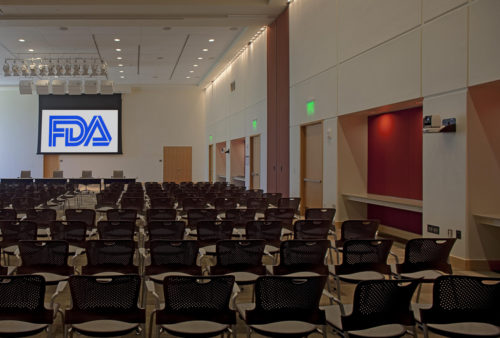Having worked with a lot of companies to prepare for an FDA Advisory Committee (AdComm) , I track the activities of the committees in a database marking outcomes, votes and other characteristics. As part of a look-back series as we begin the new year, it seemed like a good area to provide an assessment – the profile of advisory committees for the past year and how it compares to the year before.
And in fact, looking back over 2017, AdComms did take on a slightly different complexion from the previous year.
- Total Meetings – In 2016 there were 22 meetings by committees that involved votes to consider new drug applications. By contrast in 2017, there was only one more meeting – a total of 23 scheduled where new products were being considered. However, one of those meetings ended up being withdrawn by the company and one of them was withdrawn by FDA (the agency thereafter approved the product without the meeting being held), meaning that there were 21 actual votes for the year.
- Which Committees Met With What Frequency – A total of 12 of the 18 human drug advisory committees met during 2016, with the most frequent being among the Psychopharmacologic, the Arthritis, the Endocrinological and the Anesthetic Committees at 3 meetings each. However, in 2017 there were only 8 committees meeting and there was far less of a spread. The lion’s share – 9 meetings – were by Oncologic Drugs Advisory Committee, followed by the Arthritis and Psychopharmacologic Committees at 3 each. In 2016 there were 4 joint meetings of committees and in 2017 there were 5 – in all circumstances these were joint meetings with the Drug Safety and Risk Management Advisory Committee (the other common joint meeting is between the Nonprescription Drugs Advisory Committee with a second committee that may have subject matter focus over the RX version of the drug).
- Votes Up and Down – Of the 2016 meetings, 19 (86 percent) had votes that recommended approval and just 3 had votes that did not. That positive vote percentage slipped a bit in 2017. Of the 21 meetings where votes were taken to recommend approval or not, the committees voted in favor of an approval recommendation 15 times (72 percent) and voted against a recommendation of approval 6 times.
- Disagreements between AdComms and FDA – Frequently people have a question as to how often there is discordance between the recommendation of an AdComm and the FDA. Looking back through all AdComms from 2012, discord has happened on average about 10-11 percent of the time. However, both 2016 and 2017 were slightly out of the norm. In 2016 there were 3 instances where the panels recommended approval, but FDA did not approve the products – at least immediately, and there was 1 situation where the panel did not recommend approval, but FDA went ahead and approved the product anyway, a rate that was above the norm. In 2017, there was only a single example of a committee recommending approval where FDA did not approve (due to a plant inspection issue). There was also only 1 example where an AdComm did not recommend (actually an evenly split vote) approval, but FDA did approve, a rate that was below the norm.
So what do these differences mean? Are there trends to discern? Does the fact that FDA and the AdComms had fewer disagreements between them signify a new trend? Probably not. Are there other trends to pay attention to? Certainly the large number of meetings of the Oncologic Drugs Advisory Committee is important. But the bottom line is that the premium put on action by FDA this year is to manage the regulatory process in a way that facilitates quick consideration. Each committee meeting is like a snowflake – they are pretty unique – and depend on a variety of circumstances, most importantly the data and the presentation of it. This past year marked a banner year for approvals. As FDA shifts gears with the advent of 21st Century implementation and a new commissioner, the track record for 2018 in terms of both AdComms and approvals will be very telling. But that will have to wait for January 2019.



Pingback: Morning Break: Stop Questioning Trump's Mental Health; Patient Dumping on Video; Best Little Pot Town | IUK Med Online
Pingback: Morning Break: Stop Questioning Trump's Mental Health; Patient Dumping on Video; Best Little Pot Town | Donald J. Trump No. 45